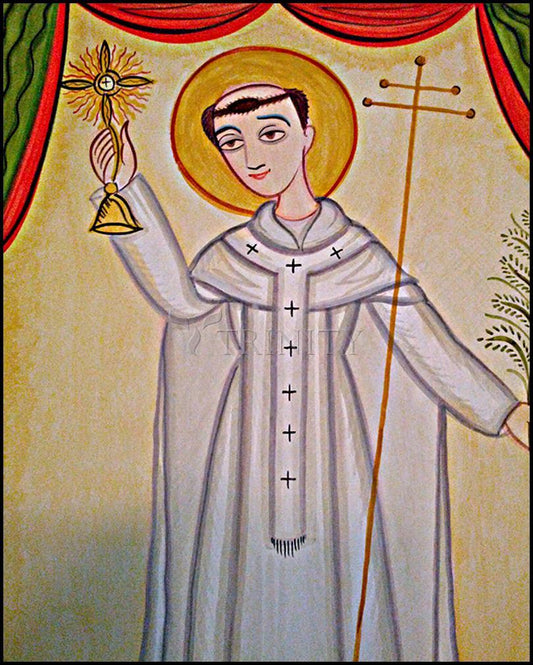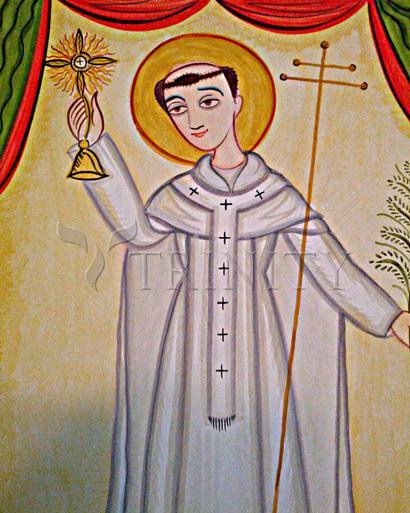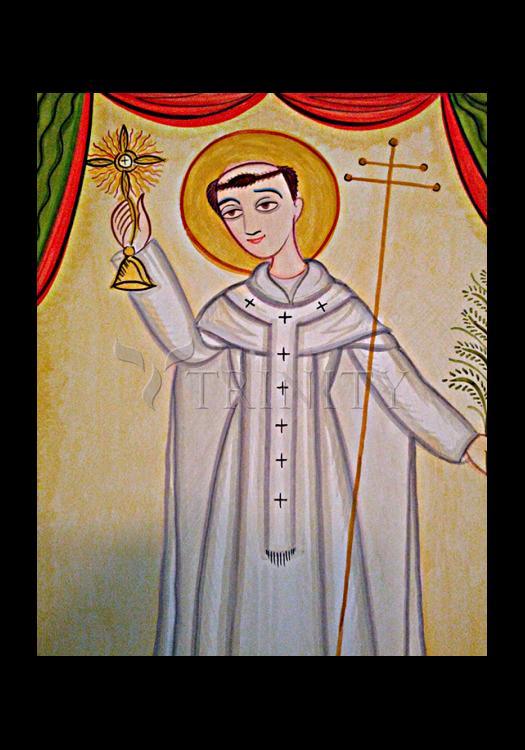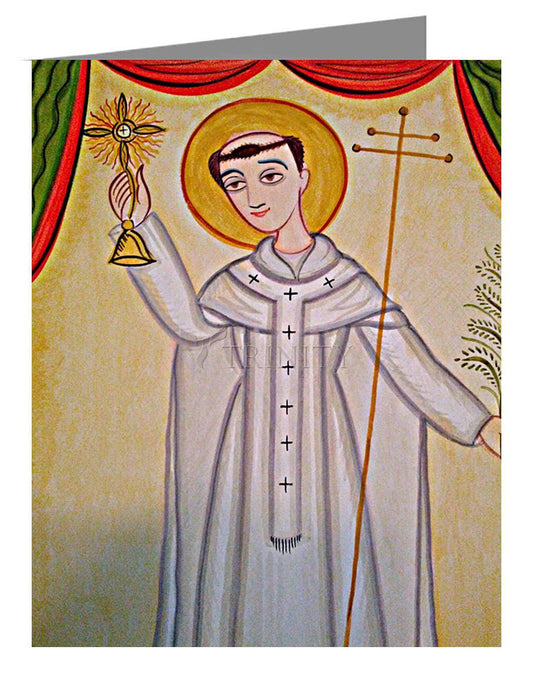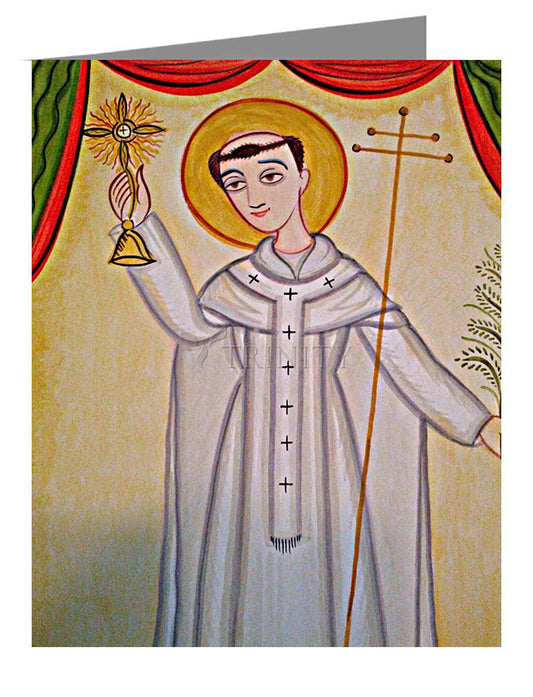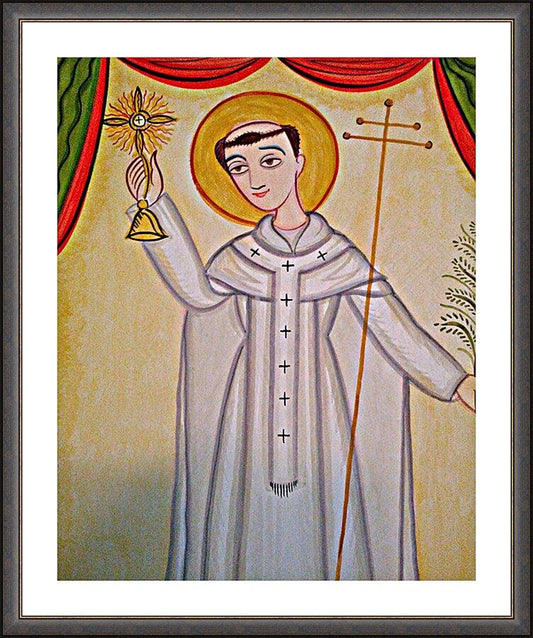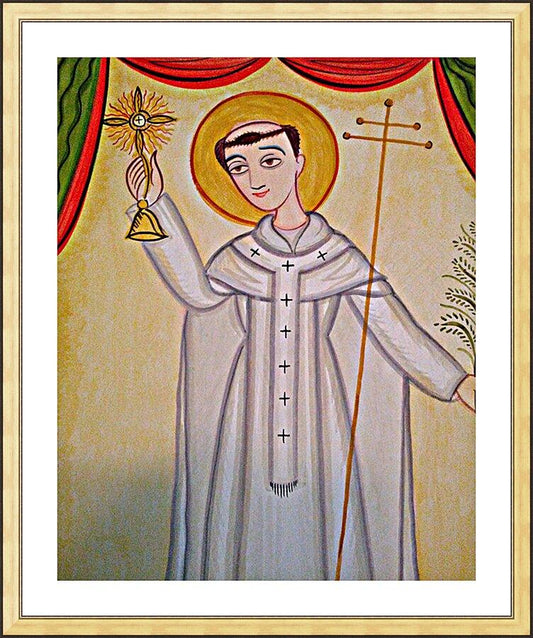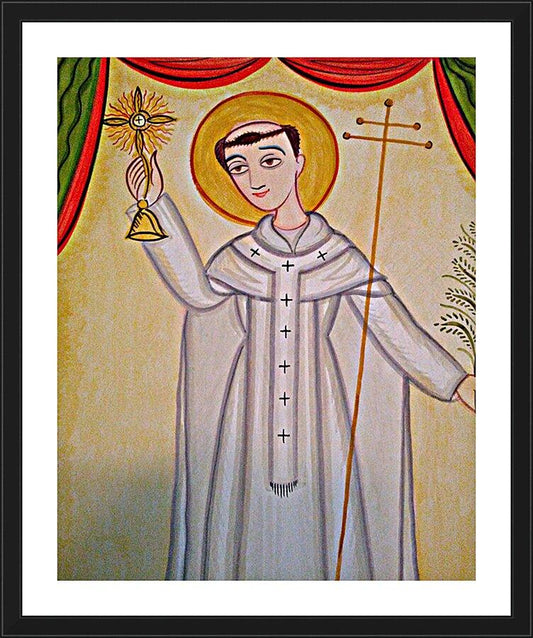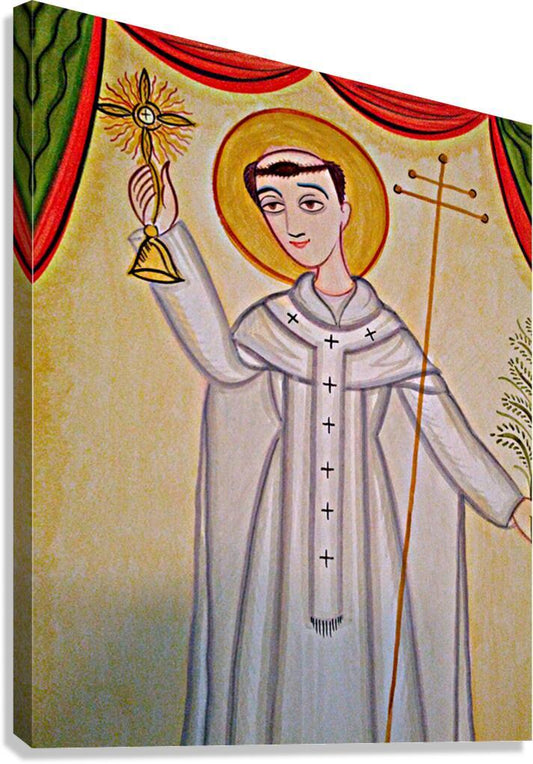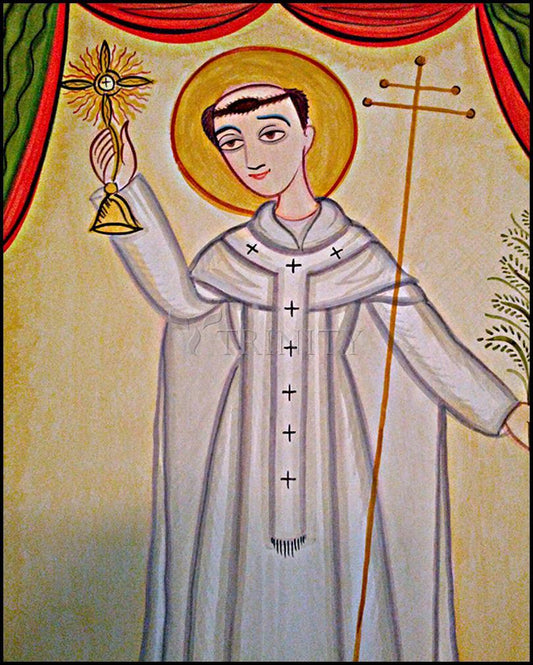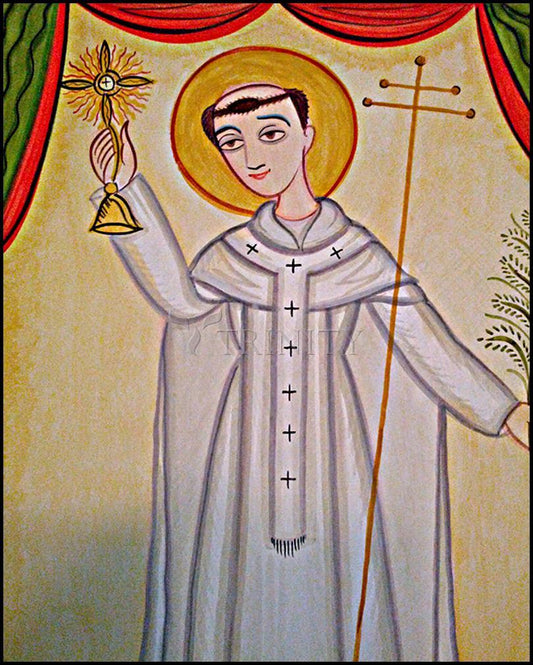ARTIST: Br. Arturo Olivas, OFS
ARTWORK NARRATIVE:
St Norbert was born about 1080 in the Rhineland and was ordained in 1115. He lived a life of penance and apostolate, and encouraged other clergy to do the same. This aroused hostility, and he left Germany and went to France, where he established a community of Canons who followed the rule of St Augustine – living in community, celebrating the Divine Office and preaching to the people. From this came the Premonstratensian Order. He was elected bishop of Magdeburg in 1126. He died in 1134.
PRAYER:
Father,
you made the bishop Norbert
an outstanding minister of your Church,
renowned for his preaching and pastoral zeal.
Always grant to your Church faithful shepherds
to lead your people to eternal salvation.
Through our Lord Jesus Christ, your Son,
who lives and reigns with you
in the unity of the Holy Spirit,
one God, for ever and ever.
Amen.
His feast day is June 6.
Read More
St. Norbert was born at Xanten in the Rhineland, about the year 1080. The early part of his life was devoted to the world and its pleasures. He entered upon the ecclesiastical state in a worldly spirit.
The thunderstorm had boiled up suddenly as Norbert was out riding. Norbert, who had always chosen the easy way, would never have deliberately gone on a journey that promised danger, risk, or discomfort. He had moved easily from the comforts of the noble family he was born into at about 1080 to the pleasure-loving German court. He had no hesitations about joining in any opportunity to enjoy himself, no matter what the source of that pleasure. To ensure his success at court, he also had no qualms about accepting holy orders as a canon and whatever financial benefices that came with that position, although he did hesitate at becoming a priest and the implied responsibilities that came with that vocation.
He immediately returned to the place of his birth, Xanten, to devote himself to prayer and penance. He now embraced the instruction for the priesthood he had avoided and was ordained in 1115. His complete conversion and new ways caused some to denounce the former courtier as a hypocrite. Norbert's response was to give everything he owned to the poor and to go to the pope for permission to preach.
With this commission in hand, he became an itinerant preacher, traveling through Europe with his two companions. In an extreme response to his old ways, he now chose the most difficult ways to travel -- walking barefoot in the middle of winter through snow and ice. Unfortunately the two companions who followed him died from the ill-effects of exposure. But Norbert was gaining the respect of those sincere clerics who had despised him before. The bishop of Laon wanted Norbert to help reform the canons in his see, but the canons wanted nothing to do with Norbert's type of reform which they saw as far too strict. The bishop, not wanting to lose this holy man, offered Norbert land where he could start his own community. In a lonely valley called Prmontr, began his community with thirteen canons. Despite the strictness of his regulation, or perhaps because it, his reforms attracted many disciples until eight abbeys and two convents were involved. Even the canons who had originally rejected him asked to be part of the reform.
In Norbert's community we have the first evidence of lay affiliation with a religious order. This came about when a count Theobald wanted to join Norbert. Norbert realized that Theobald was not called to holy orders but to marriage and worldly duties. But he did not entirely reject Theobald, giving him a rule and devotions as well as a scapular to wear to identify him as part of the community.
It was on the trip accompanying Theobald to his marriage, that Norbert was spotted by Emperor Lothair and chosen as bishop of Magdebourg. Legend has it the porter refused to let Norbert into his new residence, assuming he was a beggar. When the crowd pointed out to the flustered porter that this was the new bishop Norbert told the porter, "You were right the first time." Norbert carried the love of reform that he had found in his own life to his new diocese. As usual, this made him many enemies and he was almost assassinated. Disgusted with the citizens desire to keep to their old ways, he left the city, but was soon called back -- not because the citizens missed him but because the emperor and the pope pressured them.
When two rival popes were elected after the death of Honorius II, Norbert helped try to heal the Church by getting his admirer the emperor to support the first elected, Innocent II. At the end of his life he was made an archbishop but he died soon after on June 6, 1134 at the age of 53.



